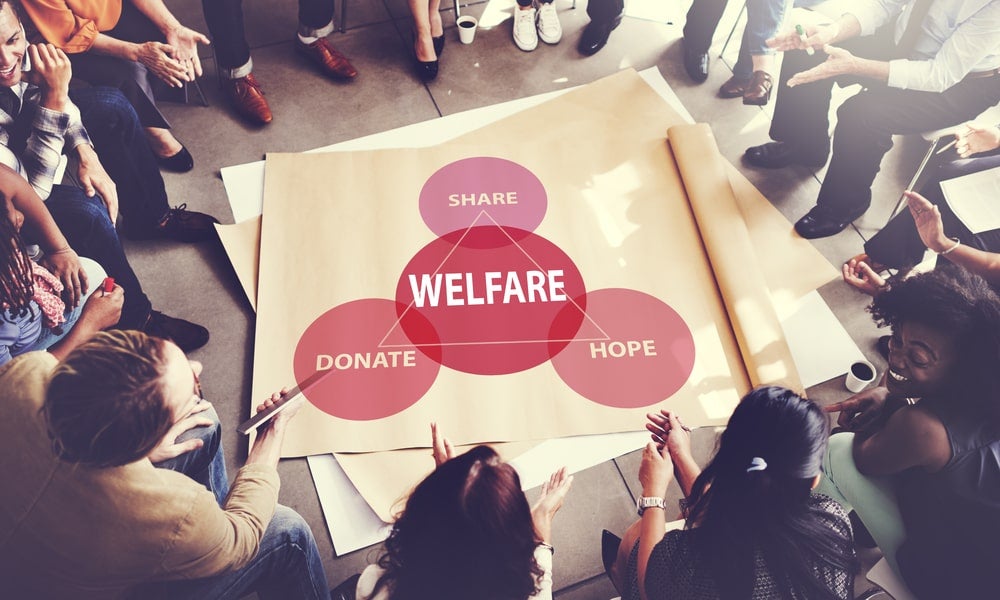Paradigm shift: a roadmap for tackling the tough social issues
Why the challenging social issues confronting Australia require a long-term and more holistic approach to policy on the part of the public and not-for-profit (NFP) sectors
Both the government and not-for-profit (NFP) sectors need a paradigm shift in terms of how they think about addressing key social issues as Australia grapples with COVID-19, according to research from the Centre for Social Impact at UNSW Sydney.
Many tough social issues are interlinked and cannot be addressed in isolation, and instead require a long-term and more holistic approach to policy development and execution, said Isabella Saunders, a research assistant at the Centre for Social Impact. “As we start talking about recovery and a post-pandemic world, we need to be conscious of how already existing inequalities can be amplified unless appropriate policy structures are put in place from the outset,” said Ms Saunders.
“People are not going to be starting from the same position in terms of financial buffers, but also how safe they feel in their communities, their access to education and healthcare. For overall social progress to improve, it has to improve for everyone.”
Ms Saunders is a researcher for Australia’s first Social Progress Index, a tool that measures how well the states and territories of Australia are providing for the basic human needs, foundations of wellbeing, and opportunities of its citizens.
“Our concerns with policy responses to COVID are around shelter, particularly: many of the legislations passed in response to an economic downturn primarily were about protecting the economic interests of landlords and residential tenants; there hasn’t really been any long term strategies or planning around the need for more adequate and appropriate social housing,” said Ms Saunders, who recently presented as part of a BusinessThink Rising Stars webinar series.
“There has also been uneven political messaging about how school education should be delivered during this time: in-person or remote learning require different resources, and assumes that all school students will automatically have access to the same internet, computers etc. at home.”
Ms Saunders also pointed to many policies (particularly at the federal level) being applied as an almost ‘blanket’ response to social issues. “For example, the automatic doubling of welfare benefits including Newstart, was much needed for all recipients,” she said. “But it doesn’t necessarily recognise issues such as the impacts on those living in remote communities (for example) where food can be much more expensive, and there is less infrastructure to support increased health demands.”
Recovery is going to look different for each community, so Ms Saunders said governments really need to work with community leaders and service providers to identify the primary needs, rather than trying to apply a ‘one size fits all’ approach.
How decision-makers can close the gap
There are a number of steps decision-makers in the public and NFP sectors can take to close policy flaws and gaps, according to Centre for Social Impact Research Fellow Dr Megan Weier, who also presented the webinar.
In particular, she said policy responses and investment should pay attention to the ways that factors such as remoteness, cultural background, living with a disability, and socioeconomic background all interact with how accessible and appropriate policy solutions are.
“It follows that equality/equity argument – sometimes to ensure that everyone is getting the same opportunities – means creating targeted policies and services in consultation with specific groups to ensure that they are appropriate,” she said.

In the Northern Territory’s SPI scores, for example, current policies are not working in providing the basic standards of living and wellbeing compared to the rest of Australia. This means that policy and service decision making needs to be done differently: “we would suggest that attending to basic human needs such as access to basic medical care, water and sanitation, shelter and personal safety should be first priority,” said Dr Weier.
Furthermore, these issues can’t be siloed and there needs to be connection and collaboration across sectors and also across social issues. “For overall social progress to increase, we can’t just focus on access to information and communications, or personal safety,” said Dr Weier.
“We also have to ensure that we are attending to inclusiveness, access to higher education, and water and sanitation. Many of these issues interlink and are actually dependent on each other. So there needs to be some creative collaboration in how services are offered; we see this work particularly well in community-led centres that respond to multiple issues of housing, health, education, and personal safety within the one team.”
Another important factor is data, and Dr Weier pointed out that an index is only as good as the data that can be included. To truly know whether things are improving across the sector she underscored the importance of numbers in backing up arguments.
“We are passionate about helping organisations measure their impact better, and our hope is that if we can move to an environment where outcomes measurement is standardised and appropriate, we can integrate that into future iterations of the index,” she said. “But that requires commitment and engagement across the board.”

Key areas in need of attention
Ms Saunders said that a particularly important focus is communicating the need to think about social progress as a series of interlinked issues to the public and NFP sector. “There is a need for the sector to work together to think about how issues are connected,” she said.
“If you offer services in domestic and family violence, this obviously aligns with personal safety, but it also aligns with other components of social progress such as personal rights, personal freedom and choice, and shelter. Instead of thinking about service sectors as being single-issue, there needs to be connection and crossover. This is likely to have the most efficient response to social issues with reduced double up.”
Finally, Ms Saunders pointed out that the index is based off outcomes, not outputs, and as such the public and NFP sectors need to scrutinise their services and take outcomes measurement seriously to ensure that their programs are actually doing what they set out to do.
“Our call to government is that policies are evaluated based on whether, for example, fewer people die of cancer per year, as opposed to how much money the government spends on cancer prevention campaigns. It’s reasonable that we look for similar reflection in the services sector,” said Ms Saunders.
The BusinessThink Rising Stars webinar series provides a unique opportunity for attendees to learn from the next generation of academic thought leaders, who will share evidence-based analysis, insights and solutions to emerging challenges for business and the big issues for society. Upcoming webinars in the series include: Disaster Relief, Inc.: does corporate giving following natural disasters increase firm value?, Facebook Assessments for Hiring: Opening Pandora’s Box, and When do children have a say in child labor decisions? Evidence from a refugee camp in northern Kenya.
